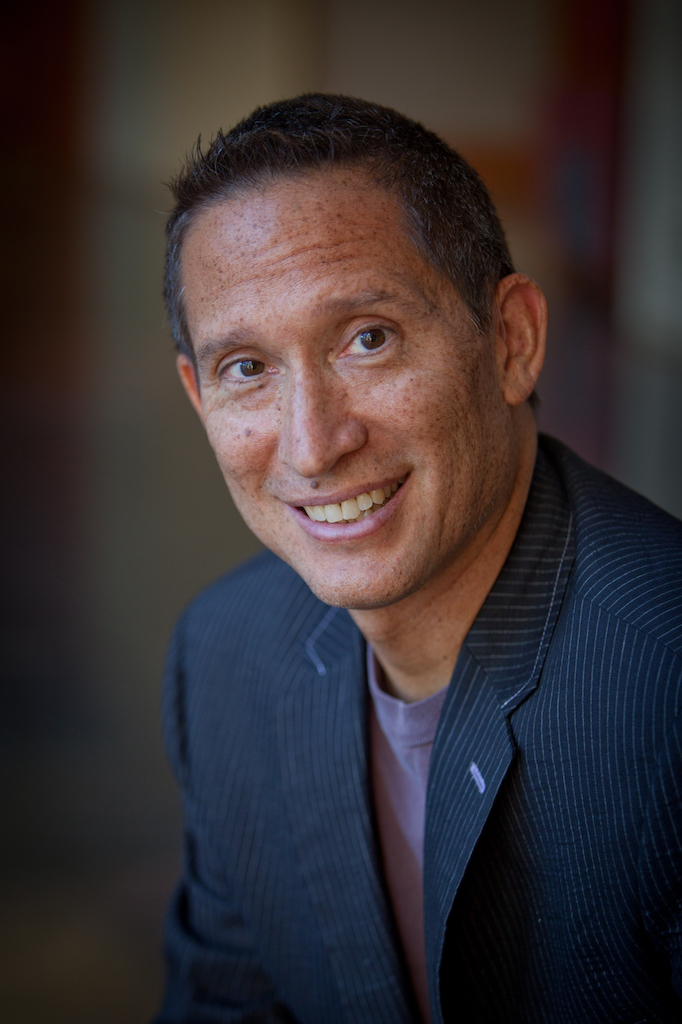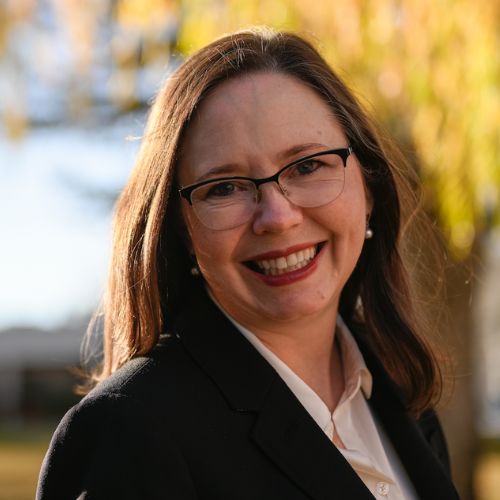
2025 FTTC Keynote Speaker: Dr. Michelle Miller
Teaching That Clicks: Learning at the Intersection of Cognition, Motivation, and Technology
Friday, October 24, 2025, 9:00 AM
One of the great promises of educational technology is that it helps us take advantage of research findings from cognitive, brain, and learning sciences in our quest to create effective learning activities. But there is a complication: these kinds of activities often require more effort from students, not less, and without the motivation to engage with them, they will miss out on the benefits. In this keynote, we will explore a framework for bringing cognitive and motivational research together in our teaching, with examples of both high- and low-tech learning activities that make the most of what we know about how the mind works.
Dr. Michelle Miller is the author of Minds Online: Teaching Effectively with Technology (Harvard University Press, 2014), Remembering and Forgetting in the Age of Technology: Teaching, Learning, and the Science of Memory in a Wired World (West Virginia University Press, 2022), and a new book titled A Teacher’s Guide to Learning Student Names: Why You Should, Why It’s Hard, How You Can (University of Oklahoma Press, 2024). Dr. Miller completed her Ph.D. in cognitive psychology and behavioral neuroscience at the University of California, Los Angeles, and currently serves as a Professor of Psychological Sciences and President’s Distinguished Teaching Fellow at Northern Arizona University.
Recent Keynotes
Dr. José Bowen
José Antonio Bowen has been leading innovation and change for over 40 years at Stanford, Georgetown, and the University of Southampton (UK), then as a dean at Miami University and SMU, and as President of Goucher College (voted a Top 10 Most Innovative College under his leadership). Bowen has appeared on five continents as a musician and has performed with Stan Getz, Dizzy Gillespie, Bobby McFerrin, Dave Brubeck, Liberace, and many others. His compositions include a symphony (nominated for the Pulitzer Prize in Music in 1985) and music for Jerry Garcia. Bowen holds four degrees from Stanford University (in Chemistry, Music, and Humanities), has written over 100 scholarly articles, is editor of the Cambridge Companion to Conducting (2003), and is an editor of the 6-CD set, Jazz: The Smithsonian Anthology (2011). He received a National Endowment for the Humanities Fellowship and has three TED talks. In 2010, Stanford honored him as a Distinguished Alumni Scholar.
Bowen has been featured in The New York Times, Forbes, The Wall Street Journal, The Chronicle of Higher Education, PBS News Hour, and on NPR. His book Teaching Naked: How Moving Technology out of your College Classroom will Improve Student Learning (2012) won the Ness Award for Best Book on Higher Education from the American Association of Colleges and Universities. It was followed by Teaching Naked Techniques: A Practical Guide to Designing Better Classes with C. Edward Watson (2017) and Teaching Change: How to Develop Independent Thinkers using Relationships, Resilience and Reflection (Johns Hopkins University Press, 2021). He was given a Stanford Centennial Award for Undergraduate Teaching in 1990, and he has presented keynotes and workshops at more than 300 campuses and conferences in 46 states and 17 countries around the world. His new book with C. Edward Watson, Teaching with AI: A Practical Guide to a New Era of Human Learning, will be published in March 2024 (Johns Hopkins University Press).
After twenty years of innovative educational leadership, he was awarded the Ernest L. Boyer Award (for significant contributions to American higher education) from the New American Colleges and Universities in 2018 and is now a senior fellow for the American Association of Colleges and Universities. He lives in Dallas and also does innovation and consulting for a wide variety of Fortune 500 companies.
Dr. Bridget Arend

2023 Keynote: Five Strategies to Refocus on Intentional, Meaningful Teaching
As we take a breath after the last few years, many of us find ourselves busier than ever at a time when teaching and student learning are more visible and more complex. In this interactive plenary, we identify successful strategies that strongly resonate with faculty across disciplines to provide a sense of control and purpose in our work. From designing for long-term learning, centering values and care, addressing pedagogical challenges, proactively identifying limitations, and developing reflective practitioner habits, we share strategies and examples that lead to a calm, manageable, and intentional teaching practice.
Instructors in all disciplines use reflection to help students engage in deeper learning. The use of active learning, inquiry-based methods, and online and hybrid formats have created even more need to make the thinking process visible. Yet student reflection can be messy, subjective, and elicit student resistance. How do we best structure and scaffold reflection? What type of feedback is best and how often should we use reflection? And how can we possibly evaluate the reflective process? In this session, we will explore emerging literature about structuring, supporting, and assessing student reflection by exploring useful frameworks and discussing cautions and proposed best practices.
Bridget Arend, Ph.D., is the associate director of teaching and learning at Metropolitan State University of Denver with 25 years of experience teaching and supporting teaching and learning in higher education. She enjoys helping college faculty develop an intentional teaching practice so that they can feel calm and purposeful in this aspect of their work. She continues to teach courses in Education and Applied Communications at MSU Denver and the University of Denver. Bridget owns a professional development organization called Intentional College Teaching and is co-author of a comprehensive text about instructional practices, Facilitating Seven Ways of Learning: A Resource for More Purposeful, Effective and Enjoyable College Teaching. Bridget spent part of this past summer revising (and revising) a chapter titled, “What makes college assignments meaningful?” for an upcoming Routledge publication. She received her PhD in Higher Education and Adult Learning and continues to pursue research interests including teaching strategies in higher education, the role of reflection in learning, encouraging critical thinking in discussions, and alternative ways to evaluate teaching.
Dr. Bryan Dewsbury
2022 Keynote: Power, Practice, and Pedagogy
In this talk, Dr. Dewsbury troubled the notion of what college teaching means, especially as it relates to the agency of its participants, teachers, and students. The case was made for learning environments as formative experiences for everyone to grow and learn. We discussed how this can be thought of and practiced in our classrooms, and what strategies will help you achieve more student-centered outcomes.
Bryan Dewsbury, Ph.D., is a Gardner Institute Fellow and the Principal Investigator for the SEAS (Science Education and Research) program at Florida International University (FIU). His research is focused on the social context of teaching and learning, including questions relating to identity constructs, bias, relationships, and the effects of those variables on learning in students (from K-PhD). Dr. Dewsbury has developed a number of teaching approaches and programs relating to social belonging and higher education and draws inspiration from the possibilities of education as a force for intellectual liberation.
Dr. Dewsbury was born and raised in Trinidad and Tobago. He pursued a Bachelor’s degree at Morehouse College and a Master's and PhD from FIU. At FIU, he explored a number of interesting questions in marine ecology and ecological economics and developed a number of teaching approaches and programs relating to social belonging and higher education. He is personally inspired by the possibilities of education as a force for intellectual liberation and as a means to increase critical consumerism. In between, he tries to find time to keep up with his never-ending reading list, try new microbrews, and teach himself and his wife Kizomba!
Dr. Saundra Y. McGuire
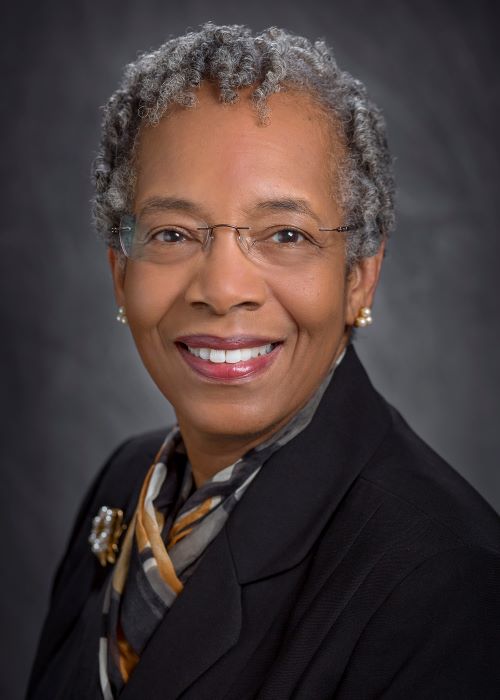
2021 Day 1 Keynote: Help Students Assume Their Role in the Learning Process: Teach Them How to Learn
Dr. Sandra Y. McGuire is the Director Emerita of the Center for Academic Success, Professor Emerita in the Department of Chemistry, and retired Assistant Vice Chancellor at Louisiana State University. She is an internationally recognized chemical educator, author, and lecturer who has traveled the globe promoting sure-fire strategies to help students, including those underrepresented in science and math professions, to be successful in their coursework and careers. She has delivered keynote addresses or presented workshops at over 400 institutions in 47 states and twelve countries. Prior to joining LSU, she spent eleven years at Cornell University, where she received the coveted Clark Distinguished Teaching Award. Her best-selling books, Teach Students How to Learn and Teach Yourself How to Learn, were published by Stylus Publishing.
Dr. McGuire’s most recent accolades include being listed in the 2020 edition of Marquis Who’s Who in America, the 2019 Distinguished Lecturer Award from the National Institute for Staff and Organizational Development (NISOD), the 2019 Commitment to Excellence in Academic Support Award from the Commission for Academic Support in Higher Education, the 2017 American Chemical Society Award for Encouraging Disadvantaged Students to Pursue Careers in the Chemical Sciences, and induction in 2017 into the LSU College of Science Hall of Distinction. She is an elected Fellow of the American Chemical Society (ACS), the American Association for the Advancement of Science (AAAS), and the Council of Learning Assistance and Developmental Education Associations (CLADEA). Additionally, she was awarded Lifetime Learning Center Leadership Certification by the National College Learning Center Association.
Dr. Bonni Stachowiak
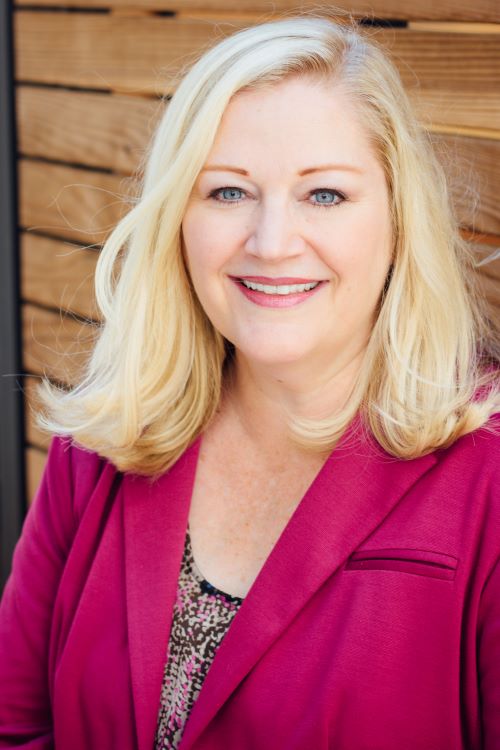
2021 Day 2 Keynote: Igniting Our Collective Imagination
Dr. Bonni Stachowiak is dean of teaching and learning and professor of business and management at Vanguard University of Southern California. As the creator and host of the Teaching in Higher Ed podcast, she provides a space for discussing the art and science of facilitating learning. She also explores ways to improve our productivity, so we can be more present for our students and have more peace in our lives. The podcast has welcomed such guests (including several past FTTC keynoters!) as James Lang, Stephen Brookfield, Cathy Davidson, Maha Bali, Saundra McGuire, Todd Zakrajsek, Clint Smith, José Bowen, Ken Bauer, Michelle M. Miller, Jesse Stommel, Kevin Gannon, Ainissa Ramirez, and Ken Bain. The Teaching in Higher Ed podcast was awarded a MERLOT Classics Award (2016) and has been profiled in The Chronicle of Higher Education, Inside Higher Ed, and EdSurge.
Her Doctorate of Education in Organizational Leadership degree is from Pepperdine University. She also earned a Master of Arts in Organizational Leadership from Chapman University. Her Bachelor’s degree is in social sciences, which is also from Chapman University. Bonni has conducted workshops and presented keynotes at various academic conferences on how to more effectively facilitate learning. She’s also shared ways to use educational technology to improve teaching and approaches for providing greater agency to our students in their learning. She is married to Dave Stachowiak, host of the Coaching for Leaders podcast. They have two young children, work full-time jobs, are both computer geeks, and are living joyfully ever after together.
Dr. James M. Lang
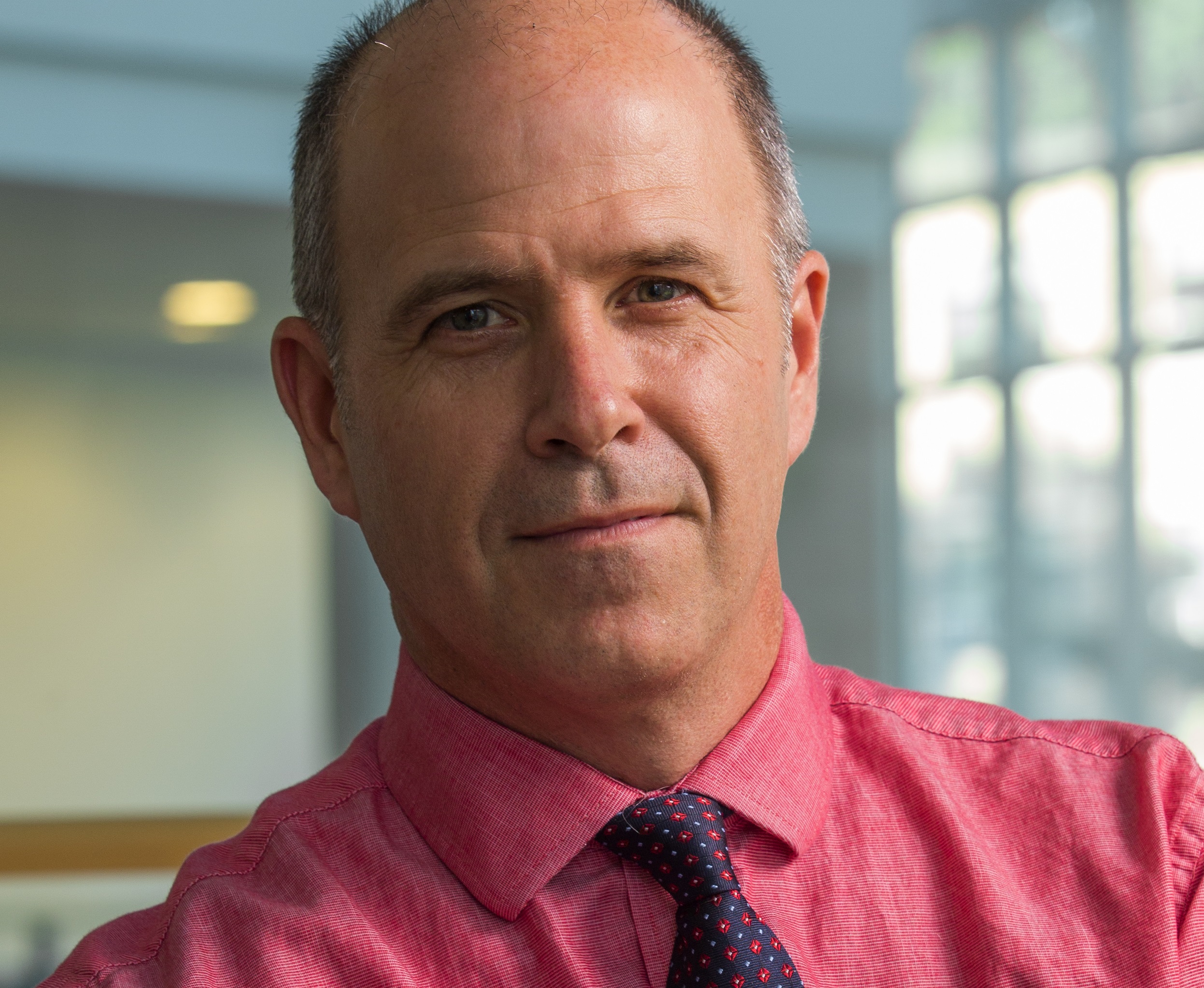
2020 Keynote: Teaching Distracted Minds: Old Challenges, New Contexts
James M. Lang is a Professor of English and the Director of the D’Amour Center for Teaching Excellence at Assumption College in Worcester, MA. He is the author of five books, the most recent of which are Small Teaching: Everyday Lessons from the Science of Learning (Jossey-Bass, 2016) Cheating Lessons: Learning from Academic Dishonesty (Harvard University Press, 2013), and On Course: A Week-by-Week Guide to Your First Semester of College Teaching (Harvard UP, 2008).
His next book, Teaching Distracted Minds, will be published by Basic Books in late 2020. Lang writes a monthly column on teaching and learning for The Chronicle of Higher Education; his work has been appearing in the Chronicle since 1999. His book reviews and public scholarship on higher education have appeared in a wide variety of newspapers and magazines, including the Boston Globe, Chicago Tribune, and Time. He edited a series of books on teaching and learning in higher education for West Virginia University Press; he co-edited the second book in the series, Teaching the Literature Survey Course: New Strategies for College Faculty (2018). He has conducted workshops on teaching for faculty at more than a hundred colleges of universities in the US and abroad and consulted for the United Nations on the development of teaching materials in ethics and integrity for college faculty. In September of 2016, he received a Fulbright Specialist grant to work with three universities in Colombia on the creation of a MOOC on teaching and learning in STEM education. He has a BA in English and Philosophy from the University of Notre Dame, an MA in English from St. Louis University, and a Ph.D. in English from Northwestern University.
Peter Felten
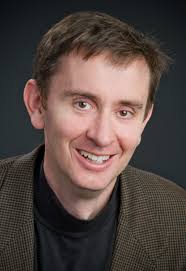
2019 Keynote: Making the Classroom a Relationship-Rich Educational Environment
Peter Felten is executive director of the Center for Engaged Learning, assistant provost for teaching and learning, and professor of history at Elon University. He works with colleagues on institution-wide teaching and learning initiatives and on the scholarship of teaching and learning. As a teacher and mentor, he regularly writes and presents with Elon undergraduates, and he works with Elon College and Honors Fellows on their research. As a scholar, he is particularly interested in learning and teaching, individual and institutional change, and student experiences and agency in higher education. His books include the co-authored volumes: The Undergraduate Experience: Focusing Institutions on What Matters Most (Jossey-Bass, 2016); Transforming Students: Fulfilling the Promise of Higher Education (Johns Hopkins University Press, 2014); Engaging Students as Partners in Learning and Teaching (Jossey-Bass, 2014)Transformative Conversations (Jossey-Bass, 2013); and the co-edited book Intersectionality in Action (Stylus, 2016). He has served as president of the International Society for the Scholarship of Teaching and Learning (2016-17) and also of the POD Network (2010-2011), the U.S. professional society for educational developers. He is co-editor of the International Journal for Academic Development and a fellow of the John N. Gardner Institute for Excellence in Undergraduate Education.

